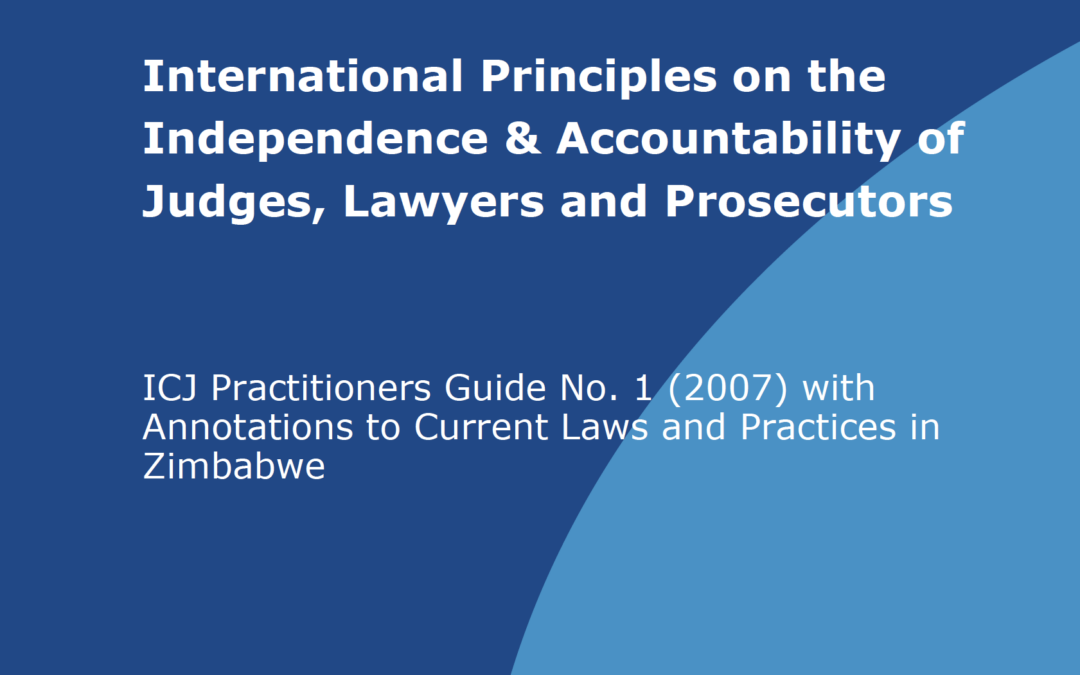
Mar 8, 2021
Today, the ICJ publishes a practical guide which will give legal practitioners and others who engage with the administration of justice in Zimbabwe a readily accessible reference tool on the question of independence of judges and lawyers
The guide is entitled the International Principles on the Independence & Accountability of Judges, Lawyers and Prosecutors: ICJ Practitioners Guide No. 1 (2007) with annotations to current laws and practices in Zimbabwe.
It adapts the ICJ’s general Practitioners Guide to the particularities of the Zimbabwe justice system so as to make it especially useful for Zimbabwean practitioners.
The Guide takes as a starting point the principle of separation of powers and affirms that the judiciary serves as an essential check and balance on the political branches of government. In that way it can carry out its role in ensuring the fair administration of justice and as a guarantor of human rights.
Judges, lawyers and prosecutors must therefore be independent for the fair and effective functioning of the administration of justice. They also must be accountable for misconduct such as corruption or complicity in human rights violations.
The Guide comes with Recommendations with a view to bringing Zimbabwean law and practices in line with international standards
Speaking on the publication, ICJ’s Senior Legal Advisor , Blessing Gorejena noted that,
“The independence of judges , lawyers and prosecutors is a cornerstone to an effective judicial system and an enabler of access to justice. It is our hope that this publication will inspire reflection and reform in line with the recommendations made in the Guide, which will strengthen the judicial system in Zimbabwe”.
The Practitioners Guide No.1 on Independence of Judges, Lawyers and Prosecutors was published in 2007. The adaptation of Practitioners Guide No. 1 reproduces the original text of the 2007 second edition, adding annotations to specific national legal and policy frameworks in Zimbabwe. It is part of a series of ICJ publications on international law which are being adapted to the Zimbabwean context. The publication will assist practitioners in terms of understanding the gaps within the Zimbabwean legal framework that need to be addressed to ensure compliance with international standards on independence of judges, lawyers and prosecutors.
Contact
Blessing Gorejena, Senior Legal Adviser and Team Leader of ICJ Zimbabwe Project, t: +263 77 215 1989, e: blessing.gorejena(a)icj.org
Elizabeth Mangenje, Legal Adviser, e: elizabeth.mangenje(a)icj.org
Download
Zimbabwe-Adaptation of PG1 to Zimbabwe-Guide-2021-ENG
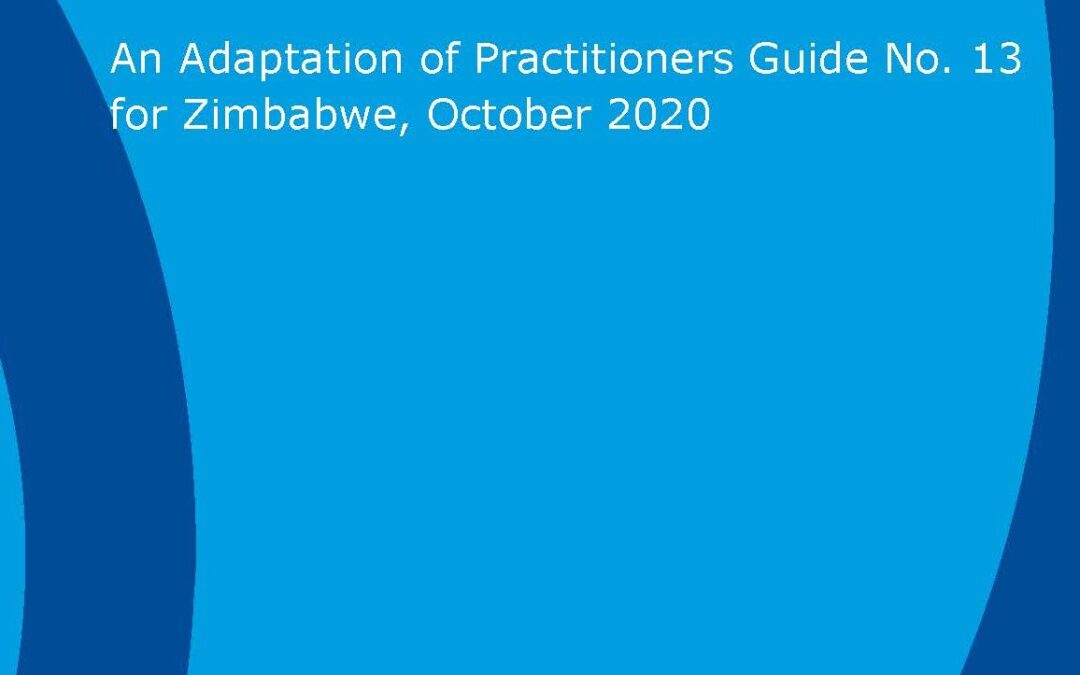
Nov 17, 2020
The ICJ has published Judicial Accountability: An Adaptation of Practitioners Guide No. 13 for Zimbabwe, which analyzes the Zimbabwean legal framework in light of international and regional standards on accountability mechanisms for judicial corruption and judicial involvement in human rights violations.
The Guide reproduces the text of the ICJ’s 2016 global publication, Judicial Accountability: Practitioners’ Guide No.13, supplementing it with detailed information, analysis and recommendations specific to the context of Zimbabwe.
The Guides focus on international and regional standards and best practices on not only the accountability of individual judges, but also the accountability of the judiciary as an institution and State responsibility under international law, particularly in relation to the harm caused to victims of violations by judges.
The adaptation of this Guide to the Zimbabwean context specifically, is meant to assist practitioners in Zimbabwe, including judicial officers and lawyers, to engage with the domestic legal framework from a position informed by international standards and best practices.
This publication should be a particularly useful and relevant resource for the Zimbabwean judiciary whose theme for this calendar year is “Judicial Transparency and Accountability”.
Speaking on this publication and its relevance to the Zimbabwean context, ICJ Senior Legal Adviser, Blessing Gorejena highlighted how topical the issue of judicial independence in Zimbabwe has been:
“Judicial accountability is at the core of a functional and independent judiciary. The independence of a judiciary cannot just be assumed, it must be evidenced by functional and effective accountability mechanisms, systems and processes which leave little to no room for doubts about the judiciary’s ability to dispense justice without fear or favor. As such, like justice, judicial independence must not only be said to exist but must be seen to exist. Accountability is how judicial independence is seen to exist.”
This Guide considers a multitude of topics relating to judicial accountability, including but not limited to an appraisal of Zimbabwe’s duties to ensure an independent, impartial and accountable judiciary under international law and an analysis of the relevant accountability bodies in Zimbabwe.
Recommendations are consequently made in an effort to tackle inconsistencies between the adopted practices in Zimbabwe and its duties under international law.
Contact
Blessing Gorejena, Senior Legal Adviser and Team Leader of ICJ Zimbabwe Project, t: +263 77 215 1989, e: blessing.gorejena(a)icj.org
Elizabeth Mangenje, Legal Adviser, t: +263 77 474 2420, e: elizabeth.mangenje(a)icj.org
Download
Zimbabwe-PG No 13 Accountability adaptation-Publications-Reports-Thematic report-2020-ENG (full guide, in pdf)
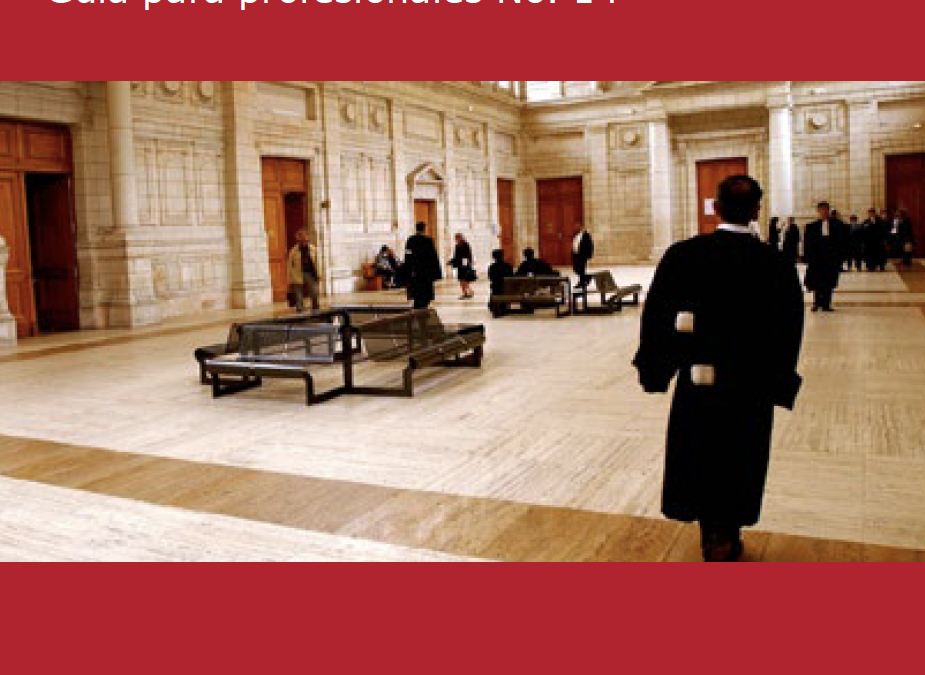
Apr 21, 2020
La Guía para Profesionales No. 14 de la CIJ, inicialmente publicada en inglés, describe los estándares internacionales que deben considerarse en las investigaciones y los enjuiciamientos que se lleven a cabo en los casos de muertes potencialmente ilícitas.
Dichas investigaciones deben cumplir los estándares internacionales del derecho internacional de los derechos humanos.
La Guía aborda los contenidos del Protocolo de Minnesota sobre la Investigación de Muertes Potencialmente Ilícitas (2016). Dicho texto fue publicado por la Oficina del Alto Comisionado de las Naciones Unidas para los Derechos Humanos en 2017, y ofrece orientación a los Estados para aplicar los Principios de Minnesota y el deber de investigar en virtud del derecho a la vida. La versión original del Protocolo fue realizada en 1991, y su revisión contó con la experiencia de distintas organizaciones, entre ellas, la Comisión Internacional de Juristas.
La versión en inglés de la Guía No. 14 fue publicada en septiembre de 2019 en el marco de la Iniciativa global de rendición de cuentas de la CIJ. Su versión en español se publica gracias al apoyo financiero de la Unión Europea, en desarrollo del proyecto “Promoviendo justicia para ejecuciones extrajudiciales y desapariciones forzadas en Colombia, Guatemala y Perú”.
Esta Guía se nutre de otras Guías para Profesionales de la CIJ, en especial:
Universal-PG 14 Unlawful death-Publications-Reports-Practitioners Guides series-2020-SPA (Guia N°14 en español)
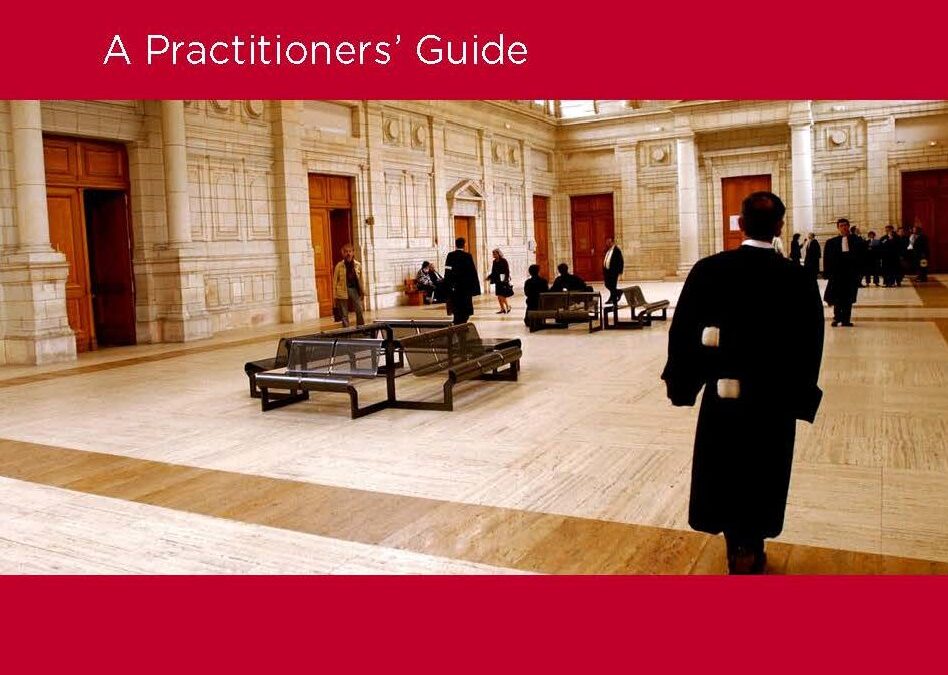
Sep 14, 2019
ICJ Practitioners’ Guide no. 14 Investigation and Prosecution of Potentially Unlawful Death aims to help legal practitioners ensure that potentially unlawful death is investigated in a manner that respects international human rights law and, where responsibility is identified, that appropriate measures of accountability ensue.
At the heart of the Guide is the Minnesota Protocol on the Investigation of Potentially Unlawful Death (2016), which was published by the Office of the United Nations High Commissioner for Human Rights (OHCHR) in 2017.
The revised Minnesota Protocol (2016) is the Revised United Nations Manual on the Effective Prevention and Investigation of Extra-legal, Arbitrary and Summary Executions, the revision of which involved expertise from the International Commission of Jurists and other leading organizations.
It is a companion document to the UN Principles on the Effective Prevention and Investigation of Extra-legal, Arbitrary and Summary Executions (1989), and sets a common standard of performance in investigating potentially unlawful death and a shared set of principles and guidelines for States, as well as for institutions and individuals who play a role in death investigations.
Topics covered by the Practitioners’ Guide include:
- Potentially unlawful death and the duty to prosecute;
- The duties of states to investigate and prosecute;
- The rights of victims’ families and of witnesses;
- General principles of forensic investigation of potentially unlawful death;
- Forensic investigation of potentially unlawful death: types of evidence and the chain of custody;
- Forensic investigation of potentially unlawful death: crime scene management and victim identification;
- Forensic investigation: the autopsy;
- The effective prosecution of individuals responsible for unlawful death;
- Specific guidance for prosecutors and defence lawyers; and
- Potentially unlawful death in armed conflict.
This Practitioners’ Guide builds on earlier Guides, especially:
– The right to a remedy and reparation for gross human rights violations – 2018 update to Practitioners’ Guide no. 2
– International Law and the Fight Against Impunity: ICJ Practitioners’ Guide no. 7
– Enforced Disappearance and Extrajudicial Execution: Investigation and Sanction – ICJ Practitioners’ Guide no. 9
– Enforced Disappearance and Extrajudicial Execution: the Right of Family Members – ICJ Practitioners’ Guide no. 10
The Practitioners’ Guide would not have been possible without the financial support of the Ministry of Foreign Affairs of Finland and was produced as part of the ICJ’s Global Accountability Initiative.
Download the full report
Universal-PG 14 Unlawful death-Publications-Reports-Practitioners Guides series-2019-ENG (PDF of English version)
Universal-PG 14 Unlawful death-Publications-Reports-Practitioners Guides series-2021-THA (PDF of Thai version)
Universal-PG 14 Unlawful death-Publications-Reports-Practitioners Guides series-2020-SPA (PDF of Spanish version
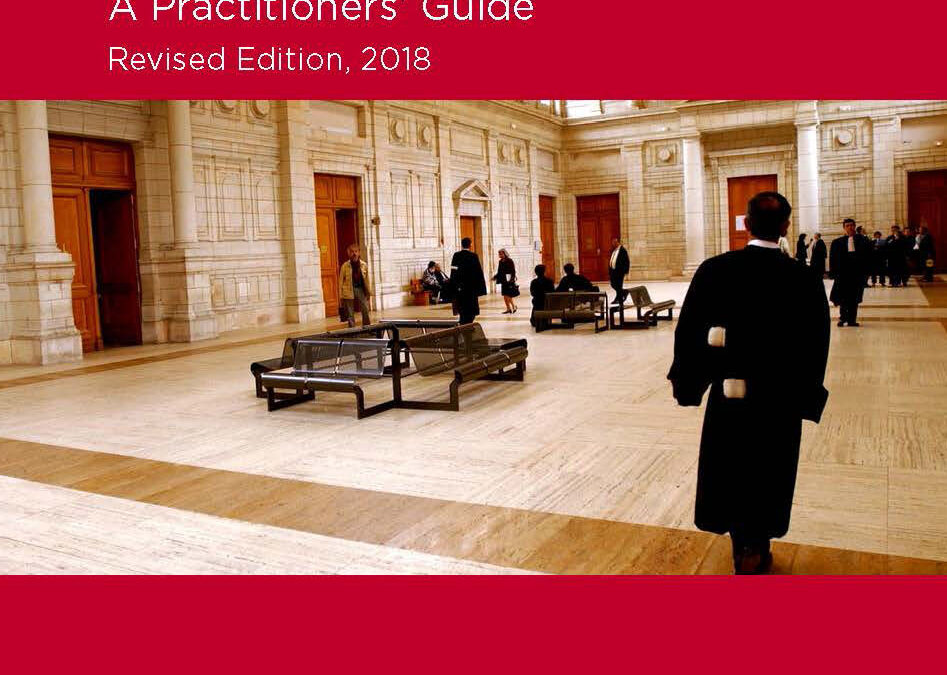
Nov 22, 2018
Under its Global Redress and Accountability Initiative, the ICJ has launched its 2018 update to Practitioners’ Guide No 2, outlining the international legal principles governing the right to a remedy and reparation for victims of gross human rights violations and abuses by compiling international jurisprudence on the issues of reparations.
The Guide is aimed at practitioners who may find it useful to have international sources at hand for their legal, advocacy, social or other work.
Amongst revisions to the Guide, the 2018 update includes new sections on terminology and on non-discrimination;updated sections on the notions of ‘collective victims’, ‘collective rights’, the rights of ‘groups of individuals’; additional references to the work of the Committeeon the Elimination of Discrimination against Women and the Committee on the Rights of the Child; an updated section on remedies for unlawful detention, including references to the 2015 UN Basic Principles and Guidelines on Habeas Corpus; and updates on gender-based violence and on violations occurring in the context of business activities.
The Guide first recalls the States’ general duty to respect, protect, ensure and promote human rights, particularly the general duty of the State and the general consequences flowing from gross human rights violations (Chapter 1).
It then defines who is entitled to reparation: victims are, of course, the first beneficiaries of reparations, but other persons also have a right to reparation under certain circumstances (Chapter 2).
The Guide goes on to address the right to an effective remedy, the right to a prompt, thorough, independent and impartial investigation and the right to truth (Chapters 3-4).
It then addresses the consequences of gross human rights violations, i.e. the duty of the State to cease the violation if it is ongoing and to guarantee that no further violations will be committed (Chapter 6). It continues by describing the different aspects of the right to reparation, i.e. the right to restitution, compensation, rehabilitation and satisfaction (Chapter 7).
While the duty to prosecute and punish perpetrators of human rights violations is not necessarily part of the reparation as such, it is so closely linked to the victim’s right to redress and justice that it must be addressed in this Guide (Chapter 8).
Frequent factors of impunity, such as trials in military tribunals, amnesties or comparable measures and statutes of limitations for crimes under international law are also discussed (Chapter 9).
The guide is now also available in Turkish.
Download
Universal-Right to a Remedy-Publications-Reports-Practitioners’ Guides-2018-ENG (full text in English, PDF)
Universal-Right-to-a-Remedy-Publications-Reports-Practitioners-Guides-2018-TR [1] (full text in Turkish, PDF)
Universal-Right-to-a-Remedy-Publications-Reports-Practitioners-Guides-2018-THA (full text in Thai, PDF)









